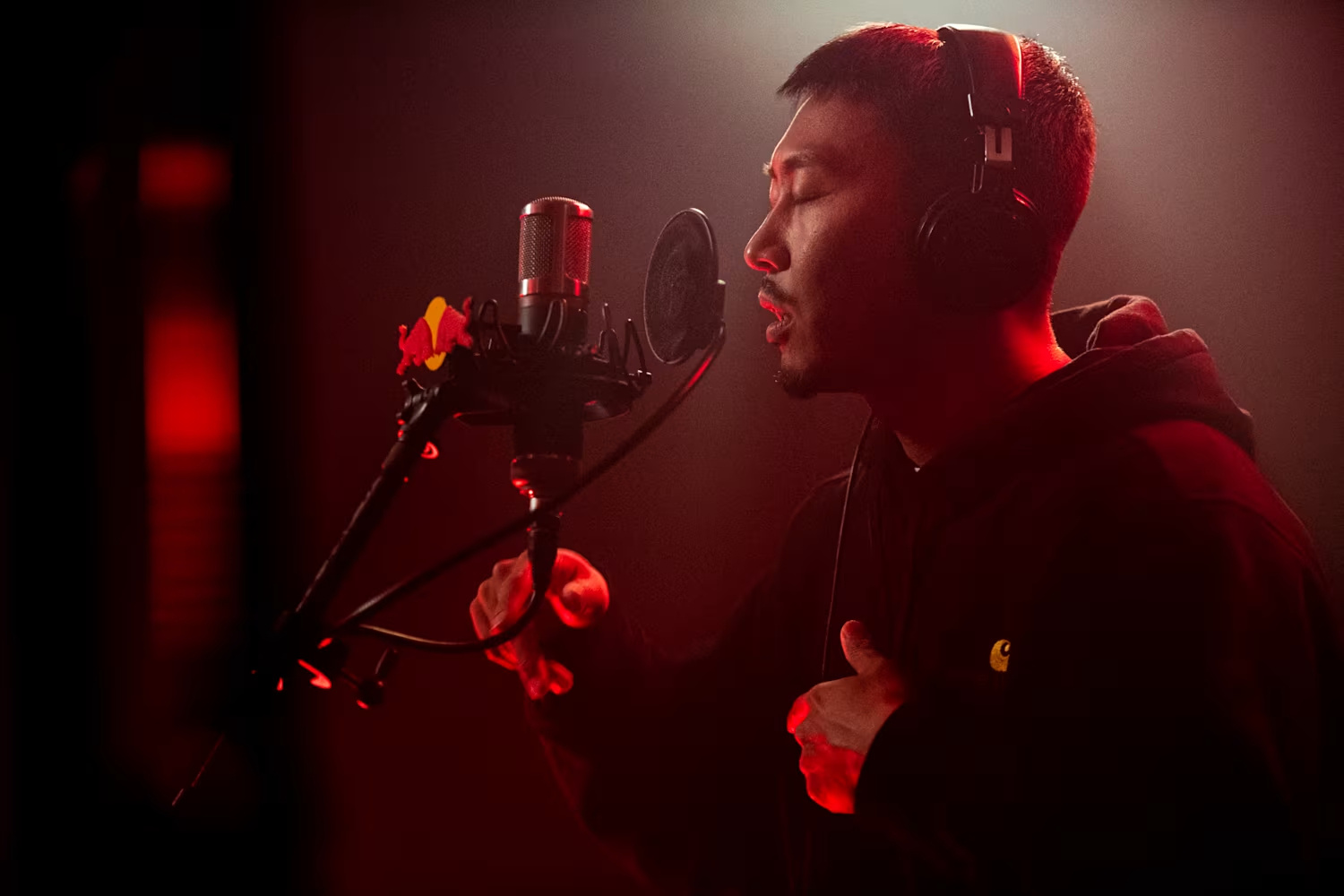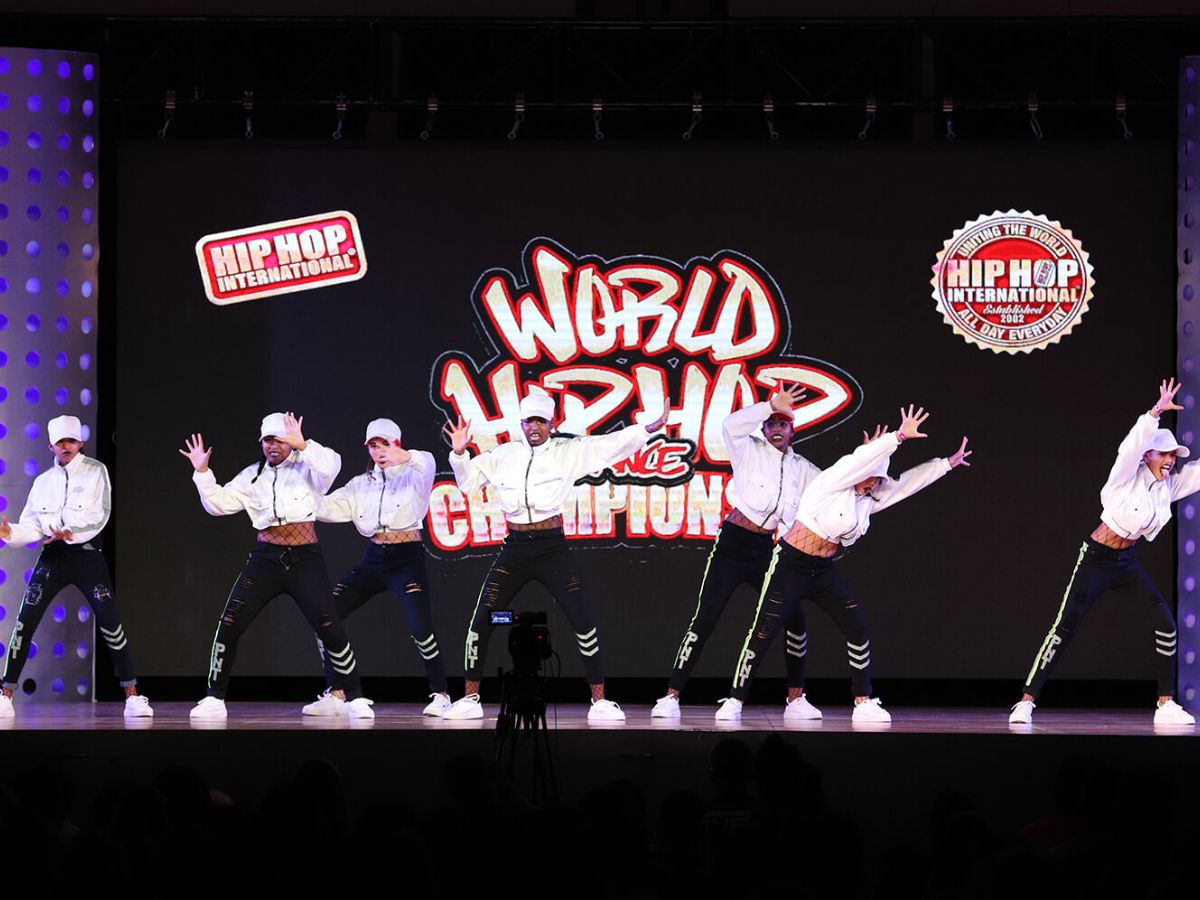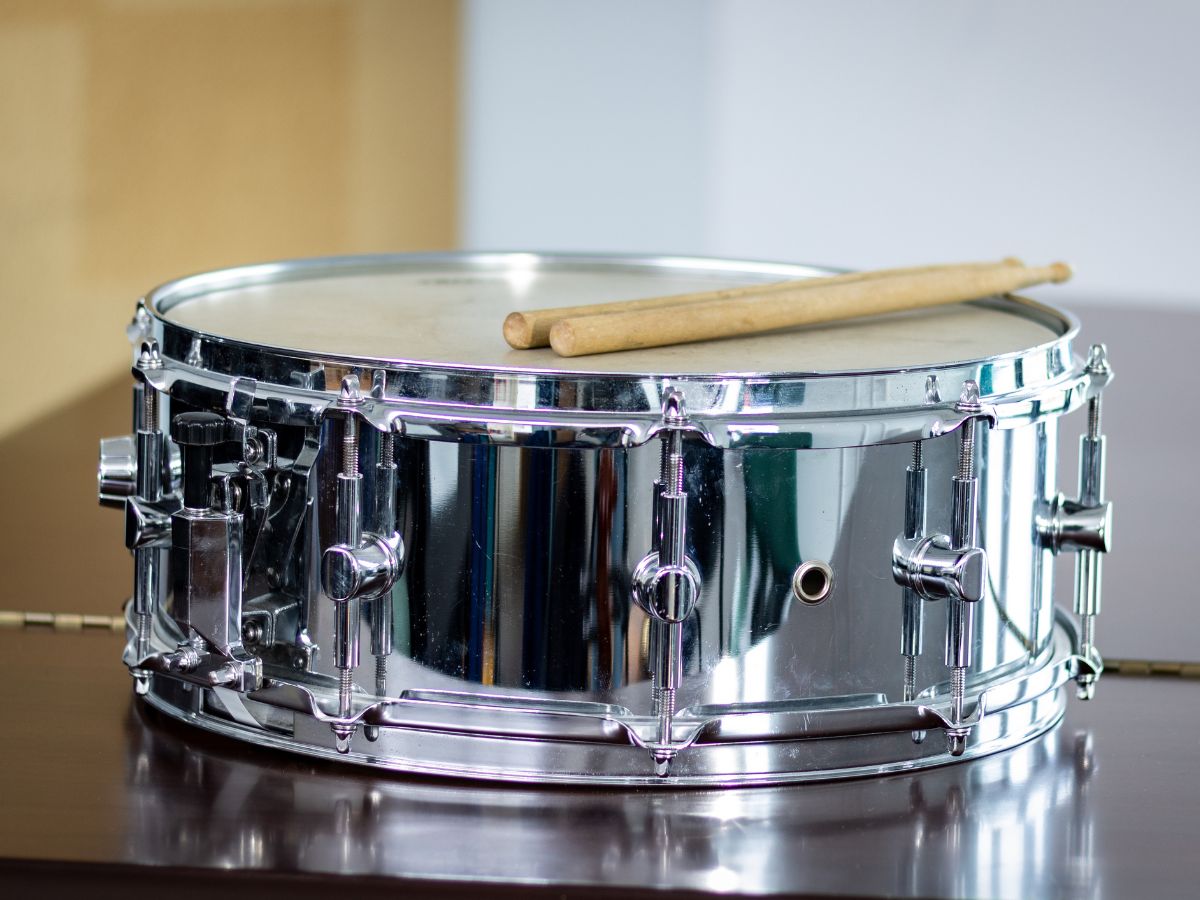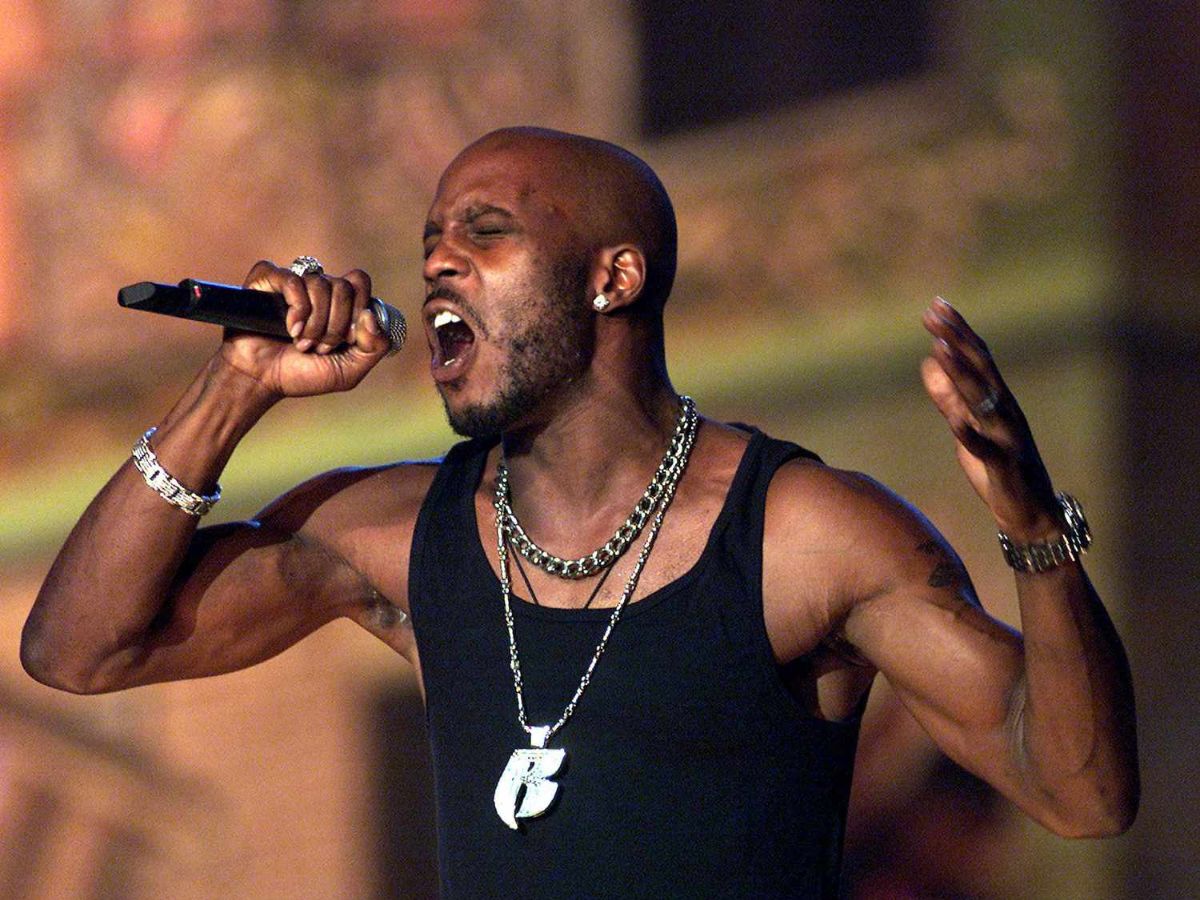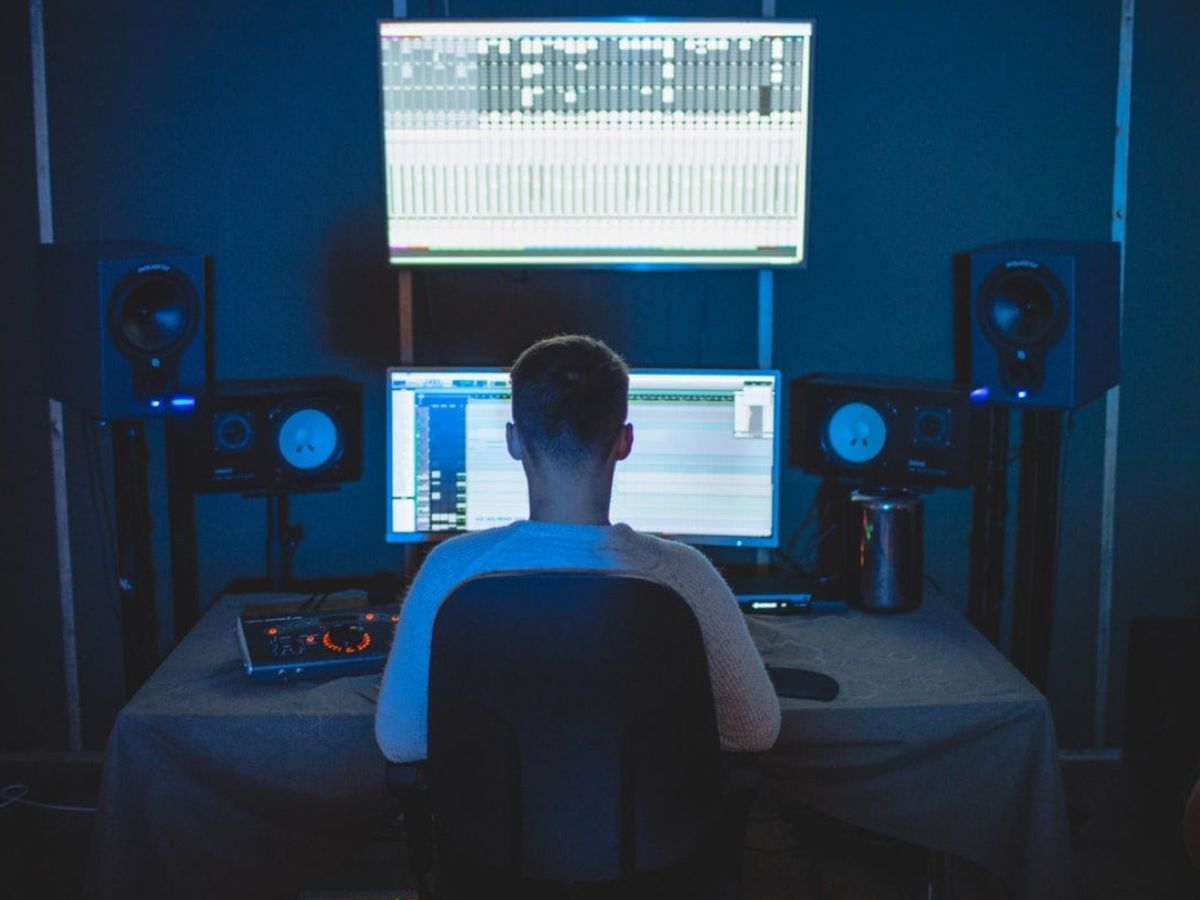

Hip Hop
What Program Do Hip Hop Producers Use
Modified: February 19, 2024
Discover the top programs that hip hop producers use to create their beats and tracks. Enhance your hip hop production skills with these industry-standard software options.
(Many of the links in this article redirect to a specific reviewed product. Your purchase of these products through affiliate links helps to generate commission for AudioLover.com, at no extra cost. Learn more)
Table of Contents
Introduction
Hip hop is an art form that is deeply rooted in creativity, rhythm, and innovation. From the early days of block parties in the Bronx to its global domination today, hip hop continues to evolve and push the boundaries of music production. Behind every hit song, there is a talented producer who shapes the sonic landscape and creates the infectious beats that drive the genre forward.
In the digital age, the role of technology in hip hop production has become increasingly significant. Gone are the days of expensive studio equipment and complex analog setups. Now, producers have a wide variety of software tools at their disposal known as Digital Audio Workstations (DAWs) that allow them to create, arrange, mix, and master their music.
With such a vast array of DAWs available, it can be overwhelming for aspiring hip hop producers to choose the right one for their needs. Each DAW has its own unique features, workflow, and interface, making the decision even more difficult.
In this article, we will explore some of the most popular DAWs used by hip hop producers, examining their strengths and discussing why they are favored by industry professionals. Whether you are a seasoned hip hop producer looking to switch DAWs or a beginner just starting your musical journey, this guide will help you make an informed decision and find the perfect software to bring your beats to life.
Digital Audio Workstations (DAWs) for Hip Hop Production
When it comes to hip hop production, having a reliable and feature-rich Digital Audio Workstation (DAW) is crucial. A DAW serves as the central hub for creating, recording, editing, and mixing music. It provides a comprehensive set of tools and features that enable producers to unleash their creativity and craft unique beats.
Here are some of the top DAWs used by hip hop producers:
- FL Studio (Fruity Loops): FL Studio is one of the most popular DAWs in the hip hop community. Known for its user-friendly interface and intuitive workflow, FL Studio offers a vast library of virtual instruments, effects, and samples. It is particularly praised for its powerful step sequencer, which allows producers to easily create intricate drum patterns and loops.
- Ableton Live: Another favorite among hip hop producers is Ableton Live. Loved for its versatility and real-time performance capabilities, Ableton Live excels at creating dynamic and energetic beats. It includes a unique feature called Session View, which allows for spontaneous jamming and arrangement, perfect for live performances and improvisation.
- Logic Pro X: Exclusive to Mac users, Logic Pro X is a powerhouse DAW that offers a comprehensive set of tools for hip hop production. It boasts a vast library of virtual instruments, effects, and loops, and its powerful MIDI editing capabilities make it a favorite among producers who prefer to work with MIDI-based compositions.
- Pro Tools: Widely considered the industry standard for recording and mixing, Pro Tools is also a great choice for hip hop production. Its robust editing and mixing capabilities, along with its compatibility with top-quality plugins, make it a top choice for professionals. Pro Tools is known for its stability and reliability, making it a trusted tool in the studio.
- Studio One: While relatively newer compared to its competitors, Studio One has gained a strong following among hip hop producers. Its sleek and modern interface, combined with its powerful editing and mixing features, make it an attractive option. Furthermore, its extensive sound library and support for third-party plugins make it a versatile and flexible DAW.
- Cubase: Cubase has been a staple in the music production industry for many years and has a loyal following among hip hop producers. It offers a wide range of virtual instruments, effects, and powerful MIDI editing capabilities. Cubase excels at recording and arranging, making it a go-to choice for producers who value precision and control in their workflow.
These are just a few examples of the many DAWs available for hip hop production. Each DAW has its own strengths and unique features, so it’s important to consider your specific needs, workflow preferences, and budget when choosing the right DAW for you.
FL Studio (Fruity Loops)
FL Studio, also known as Fruity Loops, is a popular choice among hip hop producers due to its user-friendly interface, powerful features, and extensive library of virtual instruments and samples. It has become synonymous with hip hop and is utilized by both beginners and industry professionals alike.
One of the standout features of FL Studio is its step sequencer, which allows producers to easily create complex drum patterns and melodic sequences. This feature has become a staple in hip hop production, as it enables producers to craft unique and intricate beats with ease.
In addition to its step sequencer, FL Studio offers a wide array of virtual instruments and effects. From realistic emulations of classic hardware synthesizers to cutting-edge plugins, FL Studio provides producers with the tools they need to create professional-grade music. The included sample library is also extensive, giving producers access to a vast collection of drum kits, loops, and one-shots that are perfect for hip hop production.
FL Studio’s mixer is another standout feature, offering a powerful set of tools for mixing and mastering. Producers can apply various effects, adjust levels, and automate parameters to achieve the desired sound and polish their tracks to a professional standard.
The flexibility of FL Studio also allows for seamless integration with external hardware and controllers, making it a versatile choice for both studio and live performances. Producers can connect MIDI keyboards, drum pads, and other devices to enhance their workflow and performance capabilities.
FL Studio has a vibrant and supportive user community, with many online tutorials, forums, and resources available. This makes it easy for beginners to get started and learn the ins and outs of the software. Additionally, FL Studio offers free lifetime updates, ensuring users have access to the latest features and improvements.
However, it’s worth noting that FL Studio is currently only available for Windows. While there is a macOS version in development, Mac users may need to consider alternative options until it becomes available.
Overall, FL Studio is a powerful and flexible DAW that caters to the needs of hip hop producers. Its intuitive interface, extensive library of instruments and samples, and robust mixing capabilities make it an excellent choice for both beginners and seasoned professionals looking to take their hip hop productions to the next level.
Ableton Live
Ableton Live has gained a strong following in the hip hop community thanks to its unique features and real-time performance capabilities. It has become a popular choice among producers looking for a versatile and dynamic DAW.
One of the standout features of Ableton Live is its Session View. This view allows for spontaneous jamming, arrangement, and triggering of clips, making it ideal for live performances and improvisation. This unique feature sets Ableton Live apart from other DAWs and appeals to hip hop producers who want to add a live and interactive element to their productions.
Ableton Live also excels at time-stretching and warping audio, which is essential for hip hop producers who want to manipulate and manipulate samples. It allows producers to adjust the tempo and timing of audio clips in real-time, opening up endless possibilities for experimentation and creative chops.
Another powerful feature of Ableton Live is its extensive collection of virtual instruments and effects. From classic analog synths to advanced drum machines, Ableton Live provides a wide range of sounds that are perfect for hip hop production. Furthermore, it supports third-party plugins, giving producers access to a limitless sonic palette.
The user interface of Ableton Live is clean and intuitive, making it easy for producers to navigate and work efficiently. Its workflow-oriented design allows for smooth transitions between the creative and mixing stages of production. The inclusion of features like MIDI mapping and automation further enhances the user experience and workflow flexibility.
Ableton Live’s integration with Ableton Push, a dedicated hardware controller, further expands its capabilities. Producers can manipulate their music in a tactile and hands-on manner, allowing for a more immersive and expressive production experience.
Lastly, Ableton Live has a strong community of users and a plethora of online resources, tutorials, and forums. This community support makes it easy for producers to learn, share, and collaborate with others.
One thing to consider is that Ableton Live has a slightly steeper learning curve compared to other DAWs. Its unique features and workflow may take some time to master, particularly for beginners. However, many producers find that the time invested in learning Ableton Live is well worth it for the creative possibilities it opens up.
In summary, Ableton Live’s real-time performance capabilities, unique features, and versatile workflow make it a top choice for hip hop producers. Its session view, time-stretching capabilities, extensive collection of instruments and effects, and integration with hardware controllers provide an unparalleled level of creativity and flexibility in hip hop production.
Logic Pro X
Logic Pro X, developed exclusively for Apple’s macOS, is a professional-grade DAW that is highly regarded in the hip hop community. It offers a comprehensive set of tools and features that cater to the needs of hip hop producers, making it a popular choice among industry professionals.
One of the standout features of Logic Pro X is its extensive library of virtual instruments and samples. It includes a wide variety of realistic emulations of classic hardware synthesizers, drums, pianos, and much more. This extensive sound library provides hip hop producers with a vast range of sonic possibilities to craft their beats.
Logic Pro X is particularly known for its powerful MIDI editing capabilities. It offers advanced tools for manipulating MIDI data, allowing producers to create intricate melodies, chord progressions, and drum patterns. This level of precision and control makes Logic Pro X a preferred choice for producers who work heavily with MIDI-based compositions.
The workflow in Logic Pro X is intuitive and designed to streamline the creative process. Its user-friendly interface allows producers to focus on their music without getting lost in complex menus. Additionally, Logic Pro X offers various features to speed up the workflow, such as Smart Tempo, Flex Time, and Flex Pitch, which enable producers to easily manipulate the timing and pitch of audio recordings.
Another notable feature of Logic Pro X is its Flex Time function. This feature allows producers to manipulate the timing of individual audio notes within a recording, making it easier to align samples, loops, and vocals with the desired rhythm. Flex Time is particularly useful in hip hop production, where tight and precise timing of samples and vocals is essential.
Logic Pro X also includes a comprehensive set of mixing and mastering tools. Its mixer interface provides advanced automation options, powerful EQ and compression plugins, and support for third-party plugins. This allows producers to achieve professional-level mixes and masters without the need for additional external plugins.
One advantage of Logic Pro X is its seamless integration with other Apple products and software. This integration allows for smooth collaboration and transfer of projects between different devices. Additionally, Logic Pro X supports the Logic Remote app, which turns an iPad into a wireless control surface, providing a tactile and efficient way to control the software.
Overall, Logic Pro X is a powerful and versatile DAW that offers a wealth of features specifically tailored to the needs of hip hop producers. With its extensive library of virtual instruments, robust MIDI editing capabilities, intuitive interface, and seamless integration with other Apple products, Logic Pro X is undoubtedly a top choice for producers looking to create professional-grade hip hop productions.
Pro Tools
When it comes to recording and mixing, Pro Tools has long been considered the industry standard. It is trusted by professionals in various genres, including hip hop. With its powerful editing and mixing capabilities, Pro Tools offers a comprehensive solution for hip hop producers looking to achieve top-quality results.
One of the strengths of Pro Tools is its editing features. It provides precise waveform editing, allowing producers to make detailed adjustments to their audio recordings. This level of control is particularly useful in hip hop production, where precise editing of samples, vocals, and drum hits is crucial to create tight and polished tracks.
Pro Tools also offers a robust mixing environment. Its mixer interface provides a wide range of built-in EQs, compressors, and other essential mixing tools. Additionally, Pro Tools supports a vast library of third-party plugins, giving producers access to a wealth of premium virtual instruments, effects, and processors.
Collaboration is made easy with Pro Tools, as it allows for seamless sharing of projects between different users. Producers can send their Pro Tools sessions to other collaborators, making it convenient to work with other artists, engineers, or mixers remotely.
Another advantage of Pro Tools is its compatibility with industry-standard hardware. It works seamlessly with high-quality audio interfaces, control surfaces, and external gear, providing a professional-level recording and monitoring experience for hip hop producers.
Pro Tools is also known for its stability and reliability. It is designed to handle large and complex projects without sacrificing performance. This is especially important for hip hop producers who often work with numerous tracks, samples, and plugins to create intricate productions.
While Pro Tools is primarily known for its audio recording and mixing capabilities, it also offers advanced MIDI editing features. This makes it suitable for hip hop producers who incorporate MIDI-based elements like virtual instruments and drum programming into their productions.
Furthermore, Pro Tools comes with powerful automation capabilities, allowing producers to add movement and dynamics to their mixes. The ability to automate plugin parameters, faders, and panning makes it easier to create dynamic and engaging hip hop tracks.
It’s important to note that Pro Tools can have a steeper learning curve compared to some other DAWs, and it can be more resource-intensive on the computer system. However, the power, flexibility, and industry-standard reputation of Pro Tools make it a go-to choice for many hip hop producers seeking to achieve professional-level results.
In summary, Pro Tools offers a comprehensive set of tools and features for hip hop producers. Its powerful editing and mixing capabilities, compatibility with high-quality hardware, and reputation as an industry standard make it an excellent choice for producers looking to take their hip hop productions to the next level.
Studio One
Studio One has emerged as a strong contender in the world of DAWs, offering a combination of powerful features and a user-friendly interface. It has gained recognition among hip hop producers for its versatility, flexibility, and innovative workflow approaches.
One of the key features of Studio One is its intuitive drag-and-drop functionality. This allows producers to easily arrange and rearrange their tracks using a visual representation of the timeline, making it efficient and convenient to experiment with different song structures and arrangements.
Studio One includes a vast library of virtual instruments and effects that cover a wide range of genres, including hip hop. From realistic sampled instruments to cutting-edge synthesizers, it offers plenty of sonic options for hip hop producers to craft their beats.
Studio One also provides comprehensive mixing and mastering tools. Its mixer interface offers advanced automation, channel strip processing, and a user-friendly graphic EQ, enabling producers to achieve professional mixes with ease. Additionally, Studio One supports third-party plugins, allowing for further customization and expansion of the available audio processing options.
Another standout feature of Studio One is its intuitive and efficient workflow. The single-window interface eliminates the need for constantly switching between different views and windows, streamlining the producer’s creative process. Studio One also offers a unique feature called “Scratch Pads,” which allows for non-destructive experimentation by creating alternate versions of a track or section without affecting the original project.
Studio One’s Project Page provides a dedicated space for mastering and finalizing tracks. It offers comprehensive mastering tools, including multi-band dynamics, EQ, and professional metering, giving producers the ability to polish their tracks to a professional standard directly within the DAW.
Collaboration is made easy with Studio One’s integration of online cloud services. Producers can easily share their projects with collaborators, making it convenient for remote collaboration and feedback.
Furthermore, Studio One places a strong emphasis on performance and optimization. It is designed to run smoothly even with large projects and resource-intensive plugins. This is important for hip hop producers who often work with numerous tracks and plugins to create complex beats.
Studio One also has an active and supportive user community. Online resources, tutorials, and forums provide ample opportunities for learning, sharing knowledge, and accessing additional content and presets created by the community.
Overall, Studio One’s combination of powerful features, intuitive workflow, and efficient interface make it a solid choice for hip hop producers. Whether working on composition, production, mixing, or mastering, Studio One offers the tools necessary to create professional-quality hip hop tracks.
Cubase
Cubase is a long-standing player in the music production industry and has been a popular choice among hip hop producers. Known for its powerful features and flexible workflow, Cubase offers a comprehensive solution for creating, recording, mixing, and mastering hip hop tracks.
One of the standout features of Cubase is its robust MIDI editing capabilities. It provides advanced tools for manipulating MIDI data, making it an ideal choice for hip hop producers who heavily rely on MIDI-based compositions. With its intuitive piano roll, drum editor, and score editor, Cubase allows for precise control over melodies, drum patterns, and harmonies.
Cubase also offers a wide range of virtual instruments and effects that cater to hip hop production. From sampled instruments to cutting-edge synthesizers, Cubase provides a diverse set of sounds to create unique and captivating beats. Additionally, Cubase supports third-party plugins, allowing producers to further expand their sonic palette.
Mixing in Cubase is a breeze with its powerful mixing console and a suite of built-in audio processors. Producers can apply EQ, compression, reverb, and other effects to individual tracks or across the entire mix. The mixer’s flexible routing options give producers the freedom to experiment and shape their tracks’ sound with precision.
Cubase also excels in audio editing capabilities, allowing for seamless manipulation of recorded tracks. Whether it’s comping vocal takes, time-stretching audio, or editing drum hits, Cubase offers a range of tools to easily achieve the desired results. Its audio warp functionality makes it easy to align samples and drum loops to the desired tempo and groove.
Cubase’s score editor is another notable feature, particularly for producers who want to incorporate live instrumentation into their hip hop productions. The score editor allows for writing, editing, and printing musical notation, making it ideal for working with live musicians or arranging orchestral elements.
Collaboration is made easy with Cubase’s VST Connect feature, allowing producers to connect with collaborators remotely in real-time to record, produce, and mix music together. This feature is especially useful for working with vocalists or instrumentalists who may be located in different geographic locations.
Another advantage of Cubase is its stability. It is renowned for its reliability, even with complex projects consisting of numerous tracks and plugins. This stability is crucial for hip hop producers who often work with intricate arrangements and heavy sound processing.
Lastly, Cubase has a dedicated user community, with many resources available online, including tutorials, forums, and user-generated content. This community support makes it easier for aspiring producers to learn the software, share knowledge, and collaborate with fellow music creators.
In summary, Cubase offers a powerful set of tools and features specifically tailored to the needs of hip hop producers. Its robust MIDI editing capabilities, extensive virtual instruments and effects, flexible mixing environment, and collaboration features make Cubase a solid choice for those looking to create professional-grade hip hop tracks.
Choosing the Right DAW for Hip Hop Production
With a wide range of Digital Audio Workstations (DAWs) available, choosing the right one for hip hop production can be a daunting task. Each DAW has its own unique features, workflow, and strengths, so it’s important to consider your specific needs and preferences when making a decision.
Here are a few factors to consider when choosing a DAW for hip hop production:
1. Workflow: Consider the workflow and interface of the DAW. Some DAWs, like FL Studio and Ableton Live, are known for their intuitive and user-friendly interfaces, making them great options for beginners. Others, like Logic Pro X and Cubase, offer extensive editing and mixing capabilities, catering to more advanced producers who prefer a deeper level of control.
2. Features and Functionality: Look for DAWs that offer the features and functionality that align with your production needs. Consider whether you require advanced MIDI editing capabilities, a robust library of virtual instruments and effects, or seamless integration with external hardware and controllers.
3. Compatibility: Consider the platform compatibility of the DAW. While many DAWs are available for both Windows and macOS, some DAWs like Logic Pro X are exclusive to certain operating systems. Ensure that the DAW you choose works smoothly with your computer system.
4. Mixing and Mastering Capabilities: Pay attention to the mixing and mastering tools provided by the DAW. Look for features like automation, versatile EQ and compression plugins, and support for third-party plugins. These tools are essential for achieving a polished and professional sound in your hip hop productions.
5. Collaboration and Support: Consider how well the DAW facilitates collaboration with other producers and musicians. Look for features like cloud-based project sharing or remote collaboration capabilities. Additionally, check if the DAW has an active user community, online resources, tutorials, and customer support to ensure you have the necessary support when needed.
6. Budget: Finally, consider your budget. Some DAWs come with a one-time purchase fee, while others require a subscription. Take into account the upfront cost as well as any potential additional costs for plugins or expansions that you may need for your hip hop productions.
In the end, the DAW that works best for you will depend on your personal preferences, workflow, and specific production needs. Take advantage of trial versions, demos, or free versions of DAWs to get a feel for their interface and features before making a final decision. Remember, the goal is to find a DAW that empowers your creativity and allows you to bring your hip hop productions to life with ease and efficiency.
Conclusion
Choosing the right Digital Audio Workstation (DAW) for hip hop production is a crucial decision that can greatly impact your creative process and the quality of your music. Each DAW has its own unique features, strengths, and workflow, so it’s important to consider your specific needs and preferences when making a choice.
FL Studio (Fruity Loops) stands out for its user-friendly interface and powerful step sequencer, making it a favorite among hip hop producers looking to create intricate beats. Ableton Live offers real-time performance capabilities and a unique session view, making it a popular choice for those seeking a dynamic and improvisational approach to hip hop production.
Logic Pro X shines with its extensive library of virtual instruments, powerful MIDI editing capabilities, and seamless integration with other Apple products. For industry-standard recording and mixing, Pro Tools is the go-to choice, known for its editing prowess, robust mixing console, and compatibility with high-quality hardware.
Studio One offers a versatile workflow, intuitive drag-and-drop functionality, and comprehensive mixing and mastering tools. Cubase stands out with its advanced MIDI editing capabilities, extensive virtual instruments, and effects, and its reputation for stability and reliability.
Ultimately, the best DAW for hip hop production depends on your personal preferences, workflow, and specific production needs. Consider factors such as the interface, features, mixing and mastering capabilities, compatibility, collaboration features, and budget. You may also explore trial versions or free demos to get hands-on experience before making your final decision.
Regardless of the DAW you choose, remember that mastering the tool is only one aspect of creating great hip hop music. Dedicate time to study the genre, experiment with different samples and sounds, and develop your unique style and approach. Continual learning and honing your skills will ultimately take your hip hop productions to new heights.
So, identify the DAW that resonates with you, dive into the world of hip hop production, and unleash your creativity to craft beats that move and inspire. With the right tool in hand and your passion for hip hop, the possibilities are endless.



